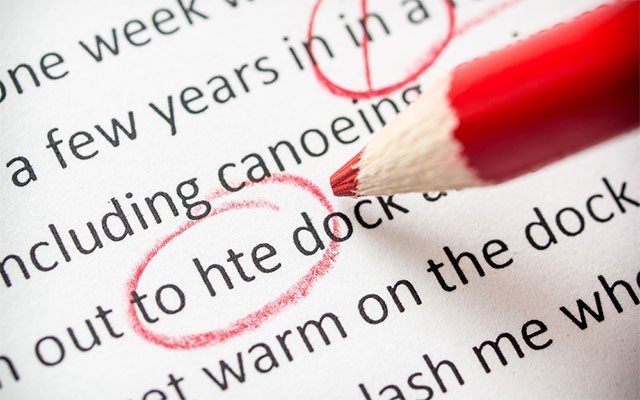I have a teeny-tiny, slightly maddening claim to fame that no one else would know if I didn't mention it here. It is that one of my editing screw-ups while working on the Comment and Analysis desk of The Guardian newspaper in Britain went into the book "Corrections & Clarifications" in 2000.
The book contains 155 pages of mistake fixes of various types that The Guardian had published in the previous year. It became an annual publication and people who love words tend to love it.
The Guardian, where I occasionally freelanced as a writer and photographer from 1991 to 2006 and worked as a staff editor from 1999 to 2003, is still referred to both affectionately and with derision as "The Grauniad" because of all the mistakes that get into print. If they ever start selling that on a T-shirt I will buy one.
It was a stroke of genius that the then-readers editor, Ian Mayes, who was responsible for preparing corrections on a daily basis, decided to compile them into a book. Most of the mistakes are hilarious. Among other things, Ian was credited with coining the word "apostrofly," as "an insect which lands at random on the printed page, depositing an apostrophe wherever it alights."
It was one of the most-read "trivia" sections of the paper and was often informative; giving fresh information that wouldn't have otherwise made it into the original article.
One example from the book (for British car lovers): "A story about a new, cheaper Aston Martin was accompanied in early editions yesterday, page 23, Finance, by a photograph of a Bentley."
Here's another: "Small point from an article about race and (radio soap opera) The Archers, page 6, G2, yesterday, xenophobia is spelt with an x not a z."
And another (the word in question is a journalist's nightmare, by the way):
"A misprint of 'public' in the Saturday Review, page 2, December 16, resulted in Neville Cardus being quoted as writing about (George Bernard) Shaw: 'We had been repressed so long in our pubic discussions... an hour of it and not a fumble.'"
And: "In an article about gap years, Education, pages 12 and 13, February 27, we included in a survival guide for students working abroad the advice to 'get vaccinated against illnesses like TB and malaria.' There is no vaccination against malaria."
I wouldn't have known if the mistake hadn't been made.
Finally: "The chimpanzees on the front of Science, November 2, were orangutans."
And my mistake? There are better ones, funnier ones (in my opinion) but this is all mine.
Back in the days where there were still writers refusing to use email (you can still come across them now, but they tend to be 80-year-old Nobel laureates who can get away with it), I was in charge of editing a page that included The Guardian's Country Diary.
In this daily segment, writers who'd quit London or Liverpool or Glasgow for the bucolic nooks and crannies of rural Britain and Ireland would write about 300 words on what the local robins or badgers were doing, how the scrumpy cider was tasting, and how hard it was to harvest the hay crop. It was better than it sounds, usually, and that was down to the quality of the writing.
One day, one of our Scottish writers faxed over his offering, which he always did because he hated this new wee email thingie.
It was duly and incorrectly scanned into the system. Then it came to me, editing it via computer. The original piece, which the Scotsman newspaper no doubt agonized over, read something like "The hind and fawn were standing in the burn" — "burn" to be read in the Scottish sense as a "stream or watercourse."
The scanner read "b-u-r-n" as "b-u-m." I missed it and so did other editors, but the page was my responsibility. So readers read: "The hind and fawn were standing in the bum." One hind and one bum in one sentence. Great.
As a naughty word, "bum" is a much bigger deal in England than in Canada and it was the joke of the office for an hour or two. "The Canadian's 'bum' deal," "Jolly hilarious," "You're a pillock," etc. etc.
And months later it was in the book.
So it was with considerable amusement and a little sympathy that I read a line about an award-winning film in a press release from this year's Whistler Film Festival on Sunday as being "both poignant and heart retching."
I will refrain from naming the film because I met the filmmaker and he seems like a good guy with a well-deserved award for a very heart-wrenching film.
I'm not mean (usually). I emailed the press office about it.
As one fellow editor friend said to me, it would actually be a great metaphor if the film were awful.
If there is one thing I have learned about the nature of mistakes from editing newspapers, it is that if you write they will come. All you can do is try to catch them.




